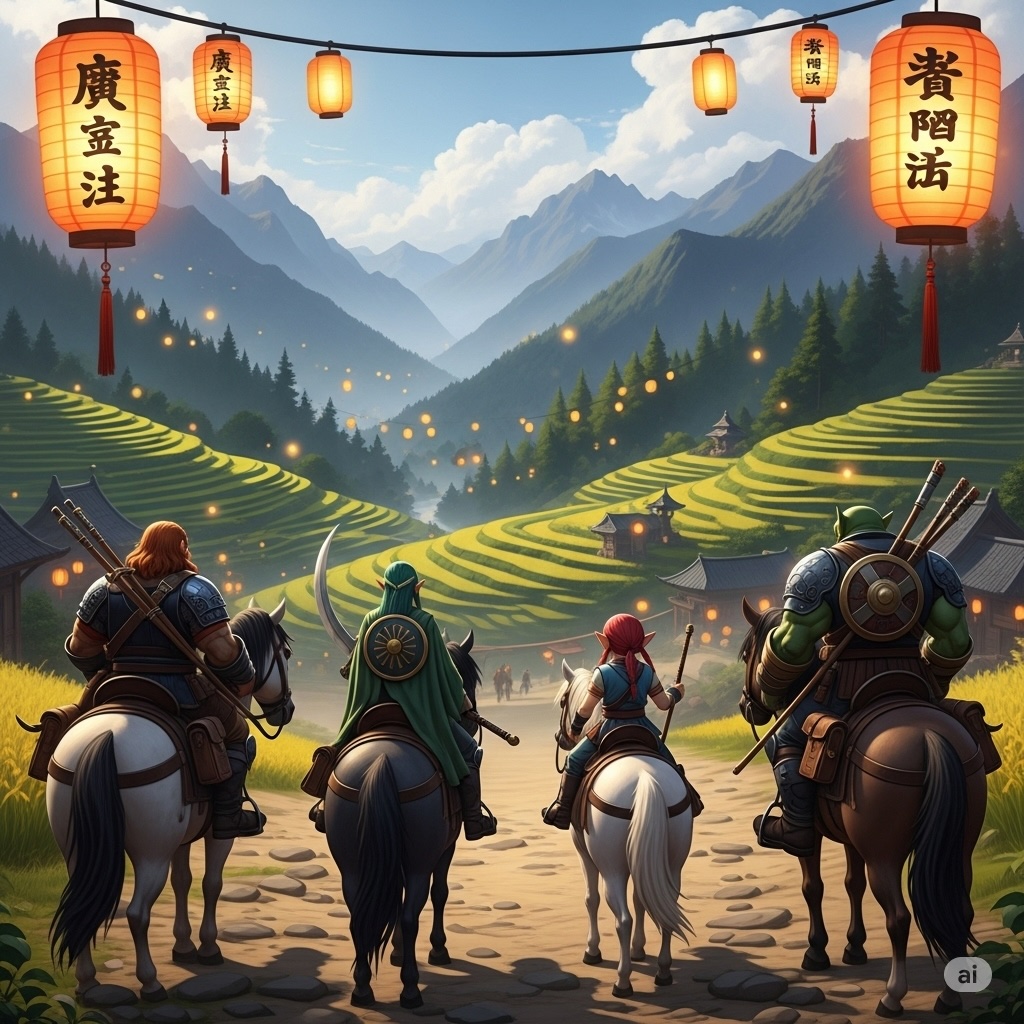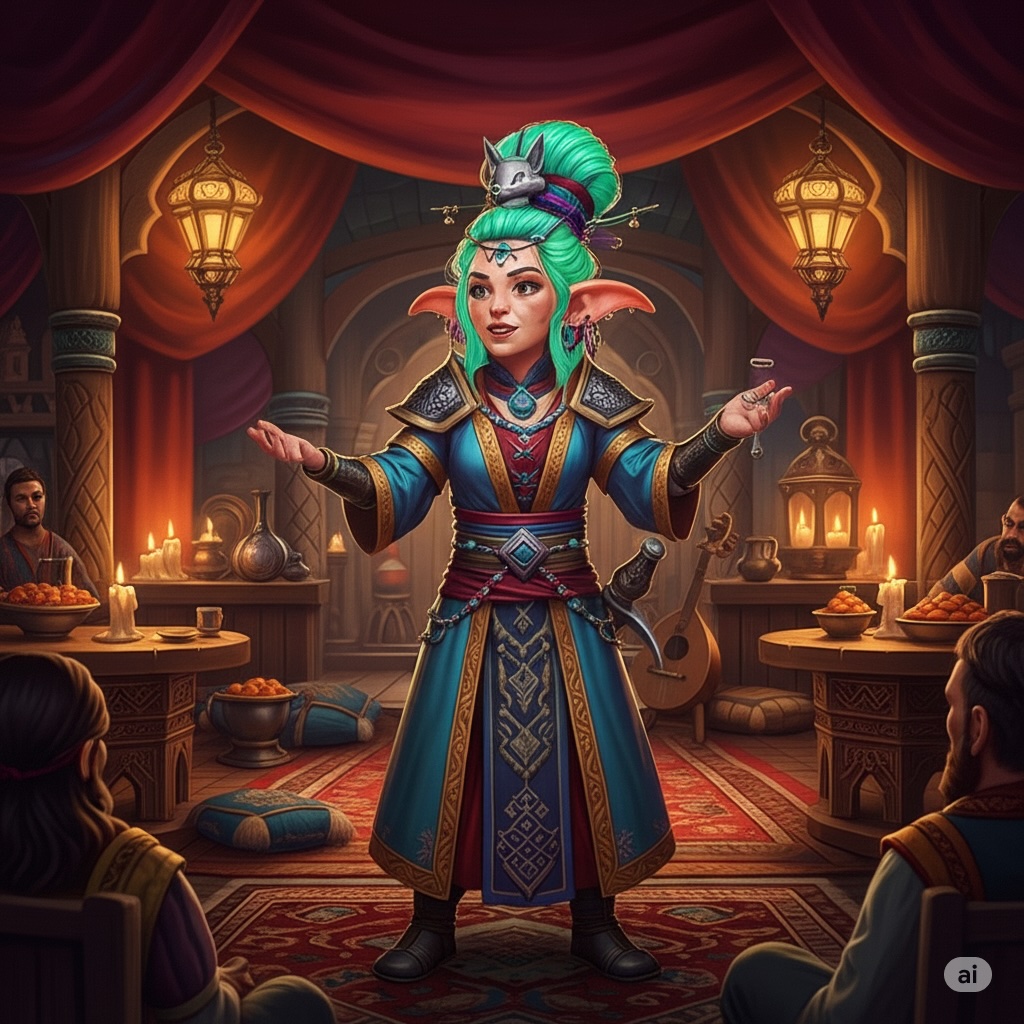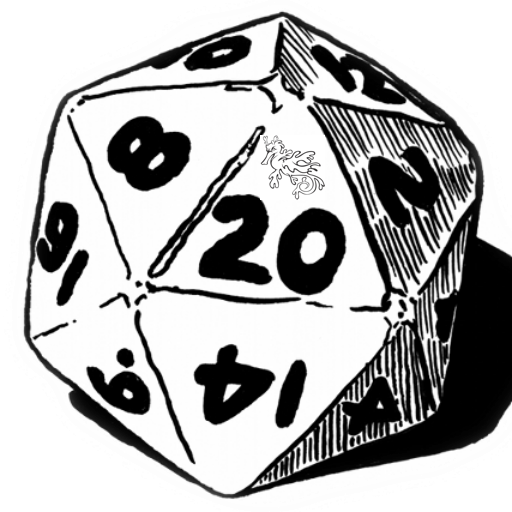Your cart is currently empty!

Episode 23 – Caradiru Pass and Kynto
Return to Caradiru
The Roving Adventurers emerged from the haunted edges of the Drakken jungle bruised and altered, their eyes carrying shadows not present when they entered. Caradiru welcomed them again, not with celebration, but with the reverent hush afforded survivors.
Shtely led them back through overgrown paths, winding between the half-submerged ruins that marked the jungle’s slow reclaiming of civilization. No beasts pursued them, but the jungle’s silence lingered long after they passed beyond the vine-choked threshold.
They arrived at the city gates as the sun slunk low, painting the river waters blood-orange. The guards watched them with wary eyes, noting the cracked armor and distant stares. In a side street shrine, incense curled in silent prayers to forgotten gods, and children stepped back from their games to watch the newcomers pass.
They stayed in Caradiru for a day, resting at the Painted Crescent Inn. Faylen slept with her bow gripped tight. Makhulim polished This and That with religious precision. Nayzungit took to fasting and meditation, while Marcho drank more than usual, laughing too loudly, the sound echoing hollow in the inn’s high ceilings.
By evening, the common room stirred with rumor. Not of the jungle. Not of ruins. But of the West.
Stories of the Far Lands
Shtely, unusually talkative, began. A merchant caravan from the docks had brought word from beyond, the lands of the great lands beyond the pass. The rumors rippled through the tavern like a stone in still water.
“Beyond Caradiru’s reach,” Shtely murmured, sipping hot rice wine, “lies a land of misty mountains and sun-carved rice terraces, of ancient empires and silent swords. Kynto. Zhan Min. Xuefeng. Kang Lan. Lands once ruled by dragons and governed by etiquette sharper than steel.”
He outlined, in broad strokes, what little lore he knew.
Kynto
The Gateway to the West, Kynto is a land of precision and tradition. It thrives on honor, craftsmanship, and the art of perfect stillness. Its people prize silence and subtlety, where gestures say more than words. Yet beneath the serene surface, ancient vendettas and rival clans plot in gardens and teahouses alike. The mountains of Kynto are said to contain iron that sings when forged correctly, and blades from Kynto are both feared and admired across the known world.
Zhan Min
The Heartland of Conquest. Once a war-wracked empire, Zhan Min now hosts a sprawling patchwork of walled cities and battlegrounds. The capital, Oakey-Bai, stands as a testament to resilience and rebirth. Its philosophies embrace cycles: life and death, peace and war, growth and ruin. Yet the scars of battle run deep. The land tells its history through shattered forts, lost banners, and the Fallow Fields, where nothing will grow, not even hope.
Xuefeng
The Twilight Peninsula. Wrapped in cherry blossoms and crimson fog, Xuefeng is a realm of poets, assassins, and exiles. Its emperors are shadows, its cities lit by paper lanterns that float down canals like lost souls. It is said that every Kang Lani carries two names: one they speak aloud, and one known only to the spirits. The peninsula sings with ghost stories and blood oaths, and travelers often find themselves walking in the footsteps of those who came centuries before.
Kang Lan
The Land of Mists and Monks. Hidden among high peaks and floating monasteries, Kang Lan is a realm of spiritual pursuit, dreamwalking sages, and dragons that do not fly but drift on mountain fog. Its people practice the Way of the Eight Winds, a meditative martial path that channels breath into force. Travelers speak of timeless moments here: a second stretching into a lifetime, or a dream that grants true prophecy. Some say Kang Lan was never conquered because it never chose to resist.
The Roving Adventurers listened in silence. Even Marcho, usually quick with jest, held his tongue.
Toward the Caradiru Pass
The next morning, their resolve renewed, the group mounted horses provided by a grateful patron of the inn—an old woman whose son had died in the jungle years prior. She simply bowed to them, pressing dried tea leaves into Faylen’s hand, and returned to sweeping her doorstep.
Their route curved northward, then west, into the low stone hills and flower-laden ridges leading to the Caradiru Pass, the only known overland route to the docks and cities of the Mare Luriat coast.
The ride was peaceful, but no one relaxed. Shtely, now with them again, recounted tales of broken bridges that had mended overnight, of silent hawks that watched caravans for days. On the second night, they camped beneath a ridge of white rock that local hunters claimed glowed on moonless nights.
On the third day, they reached the Pass.
Across the Land’s Veil
Beyond the Caradiru Pass, the land changed.
Here the air carried a new scent—jasmine, rain, and something foreign, undefinable. The flora shifted, becoming finer, more precise: tall reeds that bent in unison, trees with fan-like leaves, and flowering bushes that bled color in precise geometric patterns.
Villages appeared, sparse and perfectly ordered, every stone path clean, every gate lacquered. Travelers wore layered robes, spoke rarely, and bowed deeply.
The roads were lined with wind chimes. Some made no sound.
It was here, truly, that the Roving Adventurers felt they had stepped not merely into a new country, but a new way of being. Even the silence had a structure. Even the birdsong followed a rhythm.
Zihorne at the Crossroads
Four days later, they reached Zihorne, a crossroads town nestled between emerald fields and bronze-barked trees. The streets wound like calligraphy, and above the tiled roofs rose a central bell tower that marked the hours with soft gongs.

They found a tavern named the Red Plum Lantern, where the hostess wore a kimono embroidered with leaping koi. There, in a corner near the hearth, a halfling bard performed on a stringed instrument shaped like a crescent moon.
She introduced herself as Shui Yanni.
Yanni wore her hair in an elaborate topknot pinned with a silver fox ornament. Her eyes glittered with mischief, but her voice carried the weight of old memories.
She sang of Zihou, the capital of Kynto, where white lotus trees bloom in winter, and the Emperor is said to dream the dreams of his people. The city, she told them, rests on a river that flows to the sea, its port alive with porcelain traders and silk barons.
She told of the Battles of Kynto, where whole armies were swallowed by the cursed earth and where the wind refuses to blow. Now those battlegrounds are called the Fallow Fields. Nothing grows there. Nothing will.
Across the road from the Fields lies the Fallow Wood. It stretches for miles, a forest untouched by blade or fire, lush and overgrown. The contrast is stark: dead land to the right, green wilderness to the left.
“Some say a god bled here,” Yanni whispered. “Some say something older than a god fell here. The land remembers. And it refuses to heal.”
As her tune faded, the room sat in stillness. Then the tavern’s gong rang softly for midnight, and the Roving Adventurers knew: the road forward lay not just across distance, but through history, sorrow, and silence.


